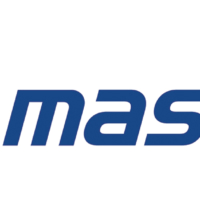Cargo handling is a vital, intricate aspect of both the economic supply chain and daily life — and a well-oiled machinery of processes and logistics as well.
With a vision to be the preferred cargo carrier with world-class facilities and offerings, Malaysia Airlines’ cargo arm, MAB Kargo, or MASkargo, understands what it takes to secure and deliver even the most delicate of goods. Rising above the challenges of the pandemic, the company continues to operate scheduled and chartered air cargo services, ground-handling services and airport-to-seaport cargo logistics via ground transportation.

“In 2020-2021, our cargo-handling market share increased from 65% to 75%. Travel restrictions gave us the opportunity to operate passenger flights entirely for cargo; about 25 to 30 tons of cargo amounted to 40% of revenue in 2021,” shared MASkargo’s Head of Operations Mohd Zulkefly Ujang. “We also started door-to-door services, where previously, we only focused on airport-to-airport. At the end of 2021, we upgraded our perishables facility; it’s now fully air-conditioned. We’re the only cargo terminal operator in Malaysia to offer (such a) facility. We also increased our charter services; our terminal now serves 40 other airlines, including JAL (Japan Airlines) and ANA (All Nippon Airlines),” Ujang said.
The company serves almost 100 destinations worldwide, with Japan among its most important markets — a nod to the Malaysian government’s Look East Policy launched 40 years ago.
“Japan has always been a very important market for us. We carry a lot of machinery and high-tech equipment out of Japan; but into Japan, we actually carry a lot of fresh flowers, daily. We’re also seeing an increase in wagyu beef coming from Japan, and they use the halal logistics services that we provide,” Ujang noted. “We have regular engagement with Japanese customers and our Japanese staff in Japan. It’s very important for a multinational company like ours to be exposed to their culture and their high standards of quality. We currently serve Narita and Kansai (airports) via direct flights and other major Japanese cities via road feeder services, but we want to expand into other regions,” he said.
Further solidifying the relationship with Japan, Malaysia Airlines and JAL have expanded their code-share operations, with new direct flights from Kuala Lumpur to Tokyo’s Haneda Airport beginning Aug. 14.





